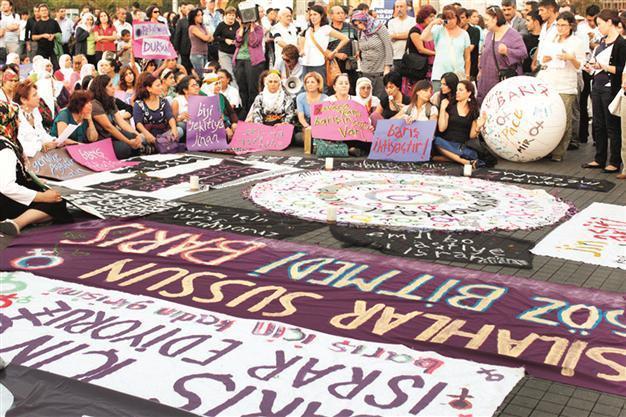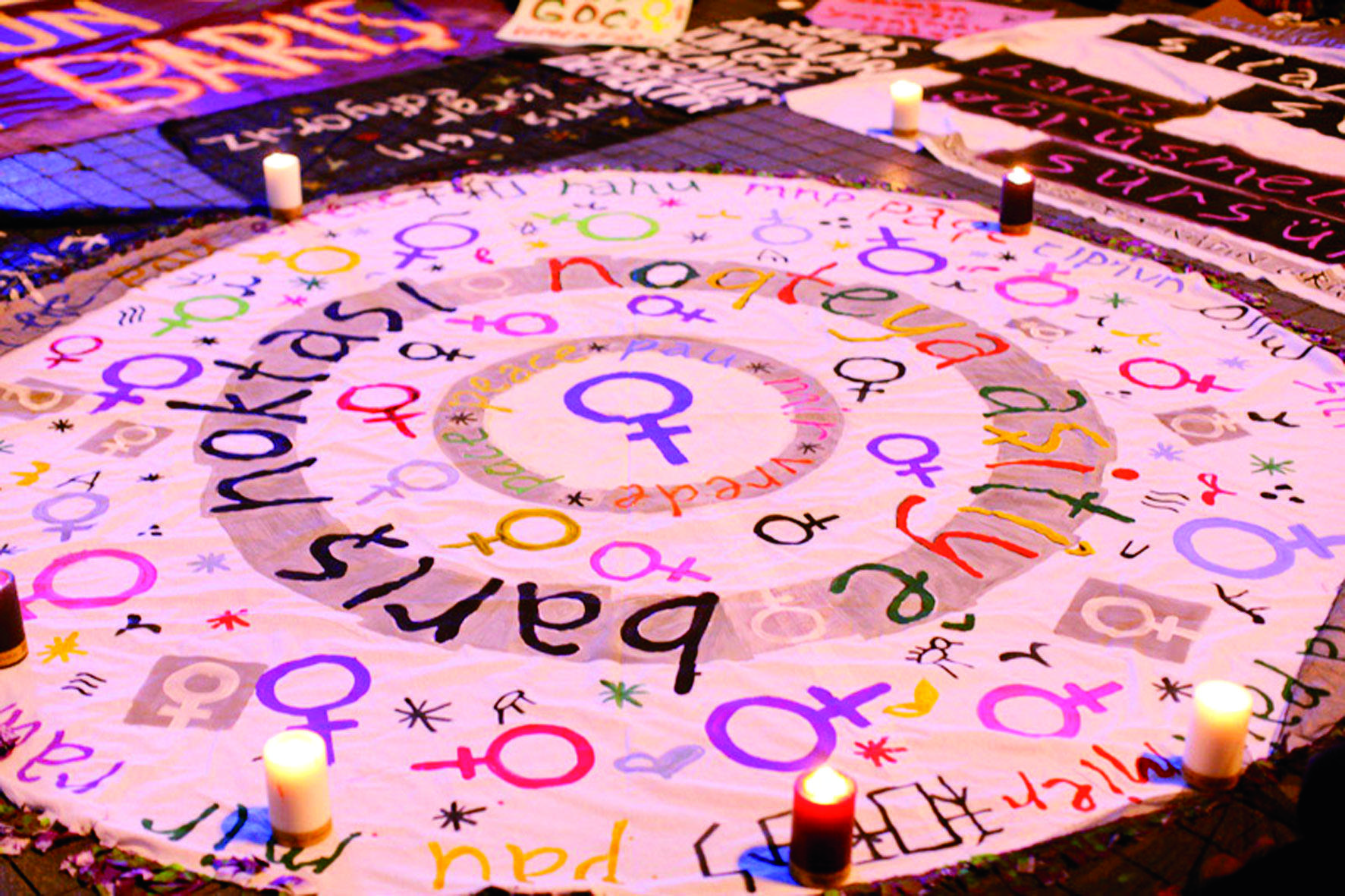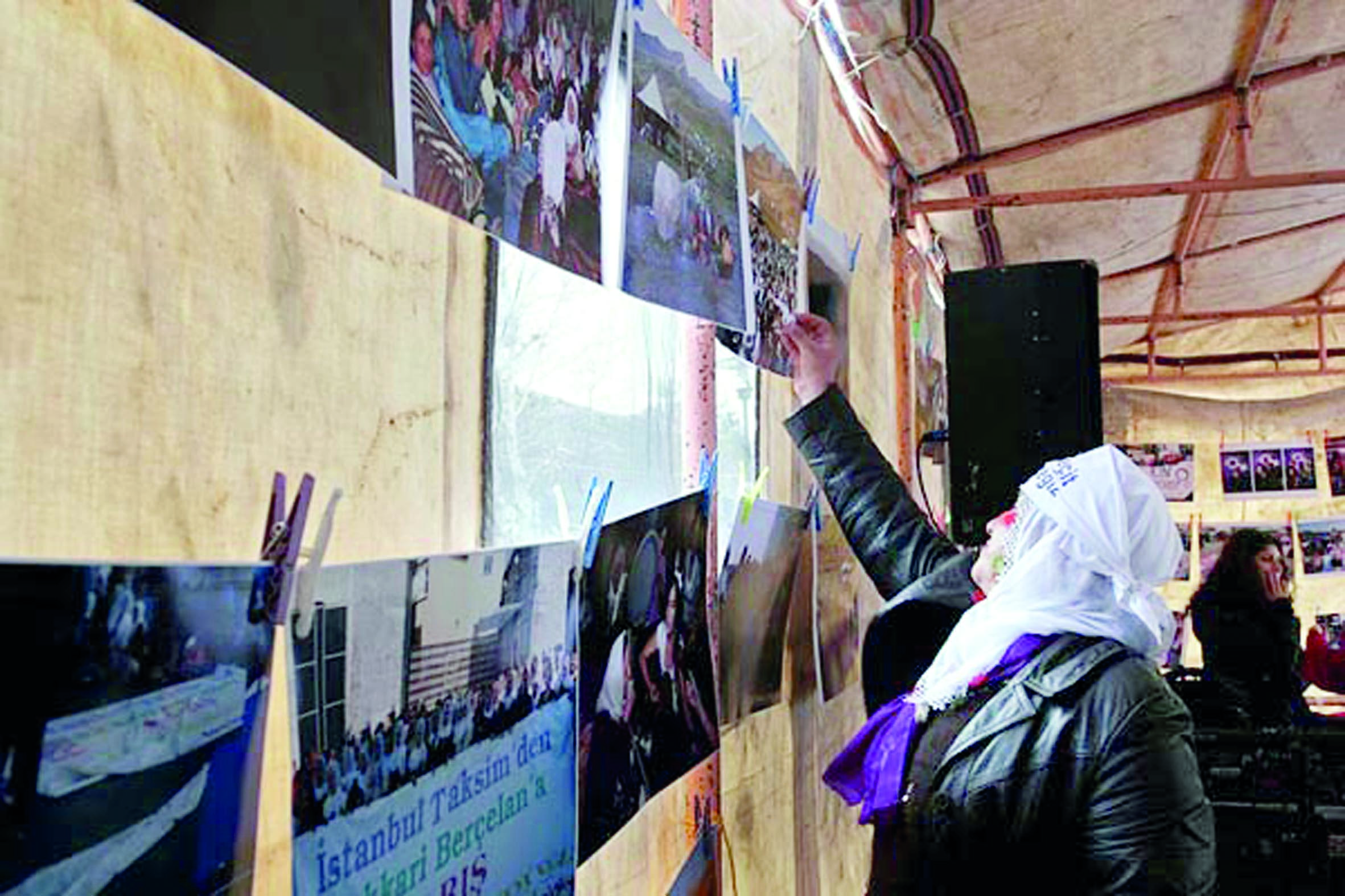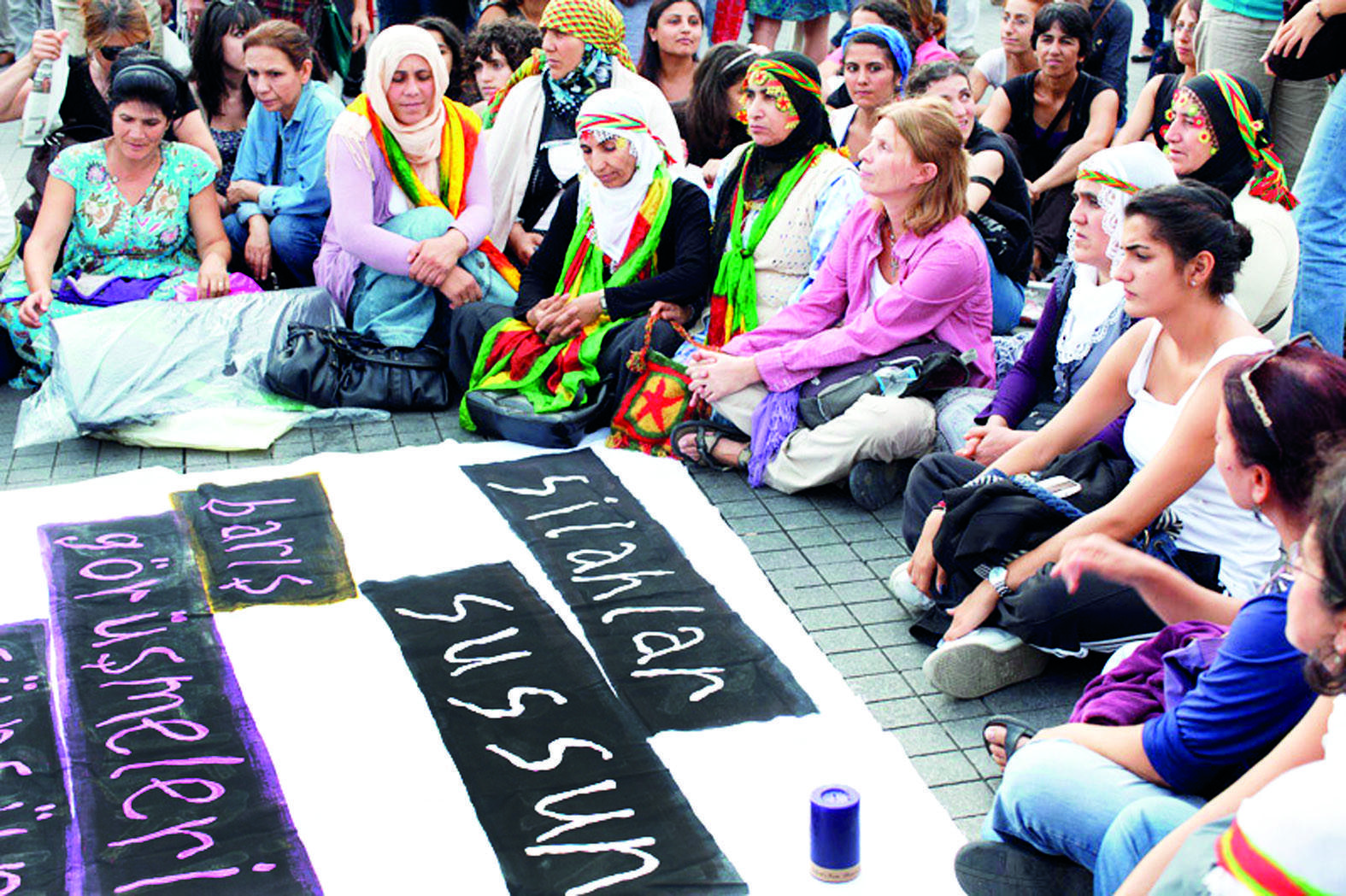Women adamant about restoring peace in Turkey
Emrah Güler - ANKARA

At one of the darkest times in its recent history, with war brewing at home and across the border, Turkey is due to celebrate “Peace Day” twice in September. An extra World Peace Day on Sept. 1 is planned to precede the United Nations’ Sept. 21 International Day of Peace - after all, this is the land of irony.
But although Turkey is time traveling back to the war-torn Turkish-Kurdish conflict of the 1990s in the southeast, cries for peace in the country have never sounded louder. Activists, journalists, academics, civil society groups - not to mention the dozens of grieving parents - are demanding peace at once in Turkey. The simple slogan “Barış Hemen Şimdi” (Peace Now) has never sounded more urgent.
In the polyphony of voices insisting on an immediate peace process, women’s voices can be heard everywhere - more insistent and more adamant. Güneş Daşlı, Research Coordinator at the Ankara-based Democracy, Peace and Alternative Policies Research Center (DEMOS), wrote for the upcoming peace campaign of “Sivil Düşün” (Think Civil), the civil society program run by the Delegation of the European Union to Turkey, to bring attention to the increasing polyphony of voices.
“Women have always proved to be the bravest during hard times, during times of war. Women’s anti-war movements have always stood out,” wrote Daşlı. “Not only have women have cried against the atrocities of war, but they have taken an anti-war stance and taken action on how to build peace through a feminist perspective. Women have taken the greatest toll during times of war, and offering ways and methods to build peace have helped create a new way of thinking.”
Initiative brings together women of peace Daşlı elaborated on women’s role in restoring peace since the 1990s in the upcoming article. “The Mothers of Peace brought together the mothers of the guerillas and the mothers of soldiers decades ago. Their message of peace was very clear, and it helped shape the public opinion of today’s young mothers of urban middle class, who bravely speak out against war,” she wrote, adding that this shows “the impact and power of women’s struggle against war. Kurdish women’s struggle against the state violence since the 1990s, coupled with the feminist struggle against military, has established a solid and strong movement for peace.”
Perhaps the biggest, busiest and best-known women’s initiative to bring and restore peace in Turkey is the Women for Peace Initiative, founded in 2009 by a group of diverse women who have been calling for peace since the 1990s. Nükhet Sirman, Professor of Sociology at Istanbul’s Bosphorus University and one of the most outspoken members of the initiative, recently wrote about it for the daily newspaper Evrensel.
“We, the women of Women for Peace Initiative, have been saying since 2009 that peace needs to come to this country,” wrote Sirman. “Some of us are feminists, some of us work for women but do not want to call themselves feminists, some of us are Muslims, some of us refrain from using religion as an identity, some of us are Alevis, some of us are Marxists, others are liberal, some of us are high school graduates, others carry graduate degrees. There is one thing we have in common: We believe that this country needs peace and we are persistent about it.”
The group has been tirelessly calling for peace through silent protests, press statements, conferences, forums, as well as dozens of articles, opinion pieces, and research papers. “We, the women, don’t want wars. We are persistent about peace,” Sirman wrote. “We have seen that the toll of war has stayed with us for decades. Just as the women who have been exiled from their villages are getting used to their new homes, new languages, new neighbors, they have once again come face to face with the language and voices of the 1990s. This language, these voices are bringing back the baggage of the last three decades.”
Women’s messages are loud and clear, and their actions are even more so.


She can understand but she can't talk: A look into the Turkish-Kurdish conflict
Alev Karaduman is a writer and journalist, now a columnist in daily BirGün’s Sunday supplement. Her first book “Anlıyorum Ama Konuşamıyorum” (I Understand But I Can’t Talk) will be released this week. In her book, Karaduman looks into concepts of identity and assimilation among Kurdish youth growing up in western Turkey, far from the heat of the war in southeast Turkey, especially during the 1990s.
The book is a compilation of Karaduman’s personal accounts, memories and observations. She writes about people’s surprise upon hearing she is Kurdish, asking, “Why can’t they believe me? Because I am pretty? Because I pluck my eyebrows?” She recalls a fellow student pretending to shoot her with a machine gun upon hearing her ethnic identity.
Her relationship with the Kurdish language is another recurring subject in the book. She writes about how they never spoke Kurdish in their house despite one of her parents being Kurdish: “Kurdish is a language of secrecy for me.” Karaduman writes about how people have dismissed her Kurdish identity on the grounds of her fluent Turkish and her clothes, and how she pointed to the darkness of her eyes and eyebrows to prove that she was indeed Kurdish.
The book is out this week.
 At one of the darkest times in its recent history, with war brewing at home and across the border, Turkey is due to celebrate “Peace Day” twice in September. An extra World Peace Day on Sept. 1 is planned to precede the United Nations’ Sept. 21 International Day of Peace - after all, this is the land of irony.
At one of the darkest times in its recent history, with war brewing at home and across the border, Turkey is due to celebrate “Peace Day” twice in September. An extra World Peace Day on Sept. 1 is planned to precede the United Nations’ Sept. 21 International Day of Peace - after all, this is the land of irony. 


